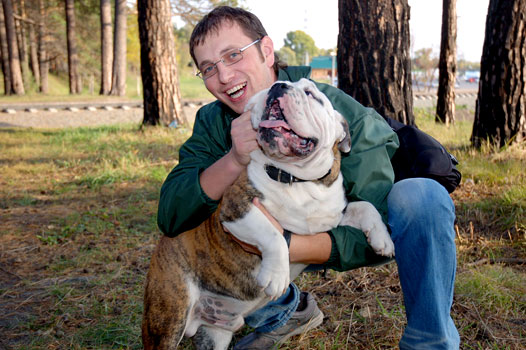It has been known for many years that keeping pets improves our overall wellbeing. You’ll not only hear endless anecdotes about the relative benefits of pet companionship, but there is an ever-growing body of research evidence looking at this in more detail. Just Google “pets and health” and you’ll find millions of pages on how having a pet decreases your risk of heart disease, cancer and depression and increases your immunity and general physical and psychological health. It’s not just dogs, either. Many studies have found that owning a cat can be just as beneficial, and it is thought that simply stroking your cat can lead to less stress and anxiety.

A recent article in the Journal of Personality and Social Psychology looked specifically at why pet ownership benefits people, and found strong links between having a pet and greater self esteem, greater physical health (partly due to increased exercise), greater conscientiousness and less fearful relationship styles. They also found that pets fulfilled social needs and provided support through difficult times, such as instances of social rejection.
A common thread through a lot of the research is the social support aspect of having an animal around the house. In recent polls of the general population, around half the people reported that their pets are “as much a part of the family as any other person in the household,” and a quarter went so far as to say their pet is “a better listener than their spouse”! Social support is really important, because it leads to improvements in a bunch of different life areas, like self esteem, physical health, and ability to engage more fully in other relationships.
Relationships
Your ability to engage in supportive and meaningful relationships with others is a major factor in overall wellbeing. The problem is, often it is taken for granted as something you should, and can, just “do” – just go out and connect with a social circle! Go, on, break down those walls!
This is far easier said than done, whether you have a history of abuse or not. For people who have experienced sexual assault or childhood sexual abuse, however, trust and intimacy can seem simply too risky. So first we need to get to the point were we feel able to cope with that level of risk.
Building your ability to have meaningful relationships can take place in several ways:
- Finding safe relationships
- Gaining a sense of belonging (through shared experiences)
- Developing interpersonal management skills, for example setting boundaries, controlling strong emotions (such as anger), building trust, developing intimacy, etc.
- Attaining personal acceptance, which may involve recognizing one’s own limits.
Where do pets come into it?
Well, meaningful relationships happen when you have a sense of safety. This means that relationships which have a low likelihood of threat to you are the best place to start. Connections with pets put you in a position of being depended on and looked up to with unconditional love and acceptance. This enables you to build relationship skills in an atmosphere of confidence, and also allows you to experience a really positive role; one of nurturing and caring, which are pretty important skills to have for any relationship.
That dog is like my daughter.” – Earl
Men have described relationships with their dogs as seeing them through difficult times, both by simply “being there” and also by teaching them about relationships and love – because, let’s face it, no one knows love like a dog. Earl talked about how he would sacrifice his own life for his dog, because his dog has been his savior in supporting him through really tough times:
To this day, I walk in that door, you know, I mean the first thing, when I open that door, she’s wanting me to pick her up, she’s licking me to death. And this dog will lick from one side of my face, completely. She won’t miss one spot and go all the way to the other side, and start all over again.”
Pets can provide a safe way to receive and enjoy physical affection. Another man, Burt, described how his spaniel had supported him through an unhappy period after his mother’s death: “She was the one, when I was really, really depressed and stuff like that, she was, she was there… She taught me how to love.” Other men have talked about their dogs in terms of the sense of safety they create, and how they can make you feel safe enough to love others. “(My dog) taught me that it really is possible to be in a room with a single other living creature and have them do you no harm. In a way I really feel like she taught me to love.”
We’d like to hear from you
If any of this rings true to you, if you have a pet who has helped you get through tough times or provided general support, affection or companionship, please send us your story and any pictures you would be willing to share on this site at the Pet’s Hall of Fame.
References and more info
- Kia-Keating, M., Sorsoli, L., & Grossman, F.K. (2010). Relational challenges and recovery processes in male survivors of childhood sexual abuse. Journal of Interpersonal Violence, 25 (4), 666-683.
- www.guardian.co.uk/lifeandstyle/2008/oct/21/healthandwellbeing-medicalresearch


Leave a reply